ch 14: social influences
1/24
There's no tags or description
Looks like no tags are added yet.
Name | Mastery | Learn | Test | Matching | Spaced |
|---|
No study sessions yet.
25 Terms
what is family?
physical maintenance and care of family members
addition of new member
guiding and behaviour
producing, consuming, distributing goods and services
love and emotion nurturance
what are some evolutions in canadian families?
couples less likely to get married
new structures of family
fertility is dropping
solo-parenting
multigenerational households
explain the dimension of parenting styles
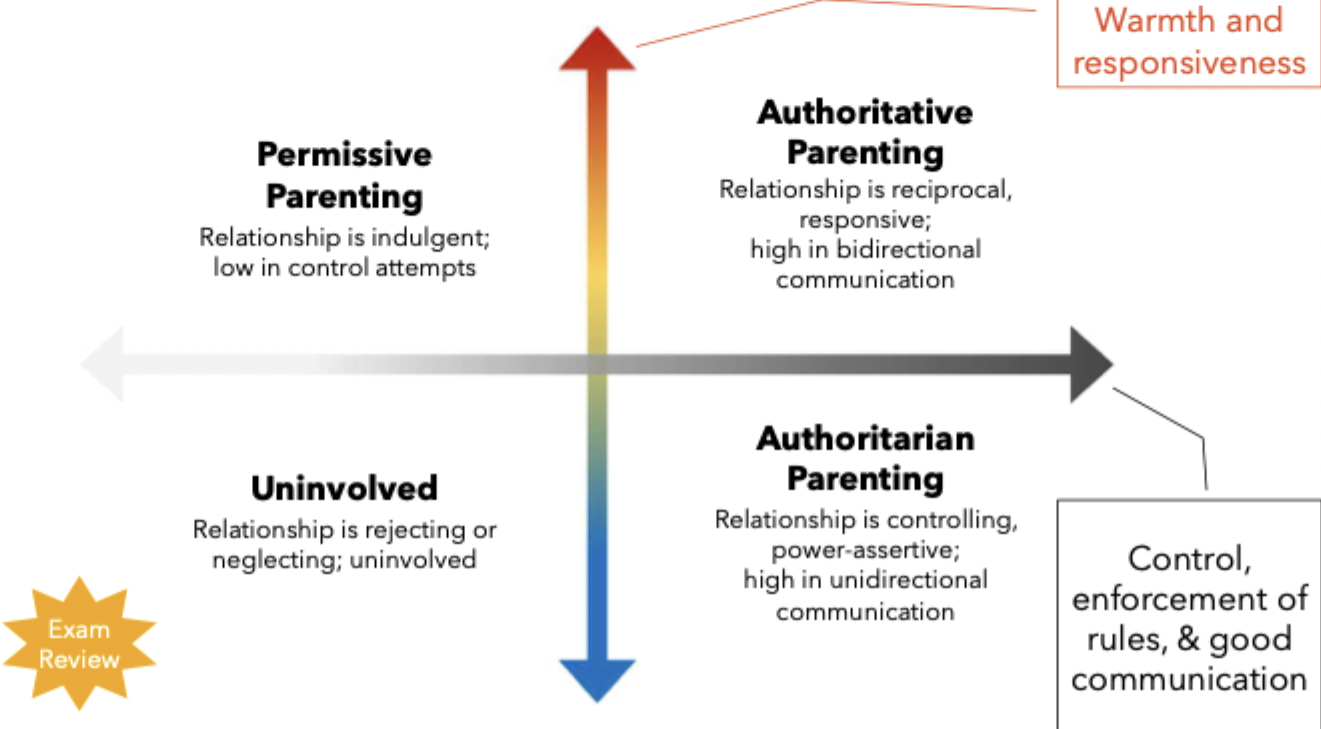
what is authoritative parenting?
reciprocal
responsive
high in bidirectional communication
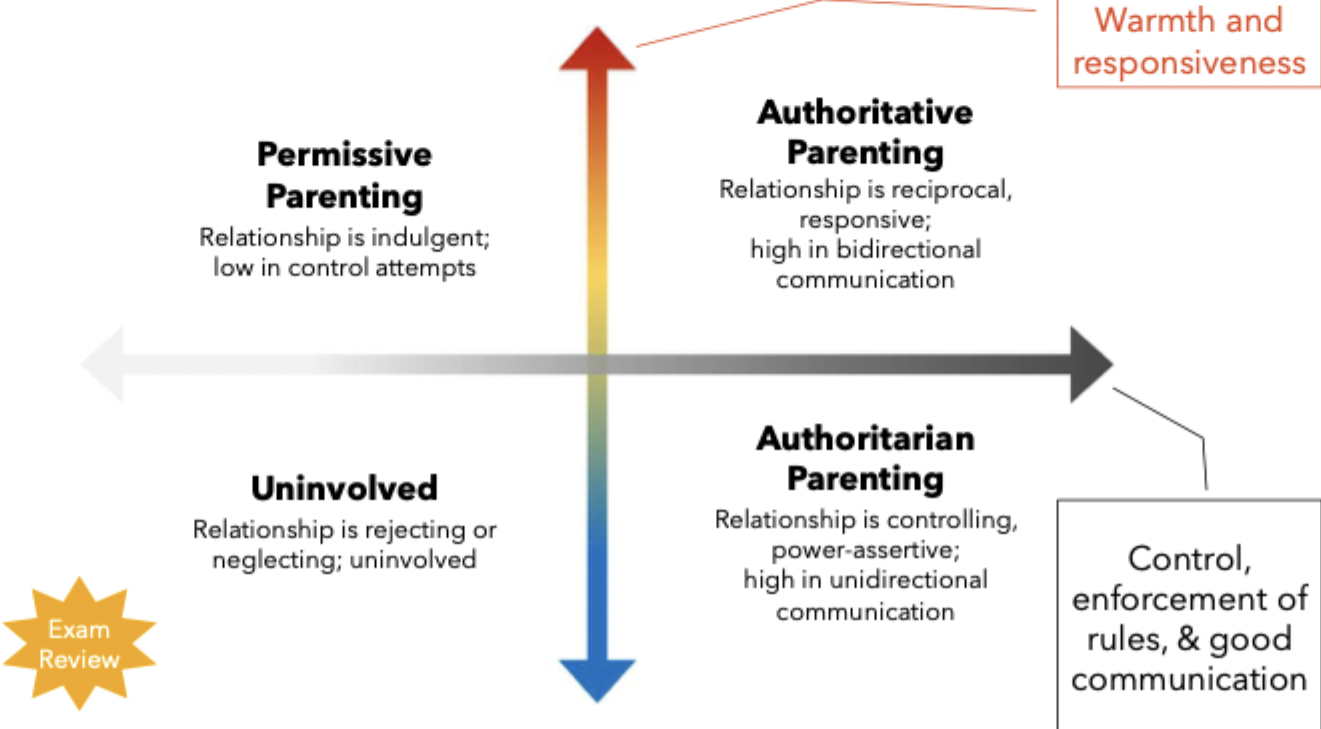
what is authoritarian parenting?
controlling
power-assertive
high in undirectional communication
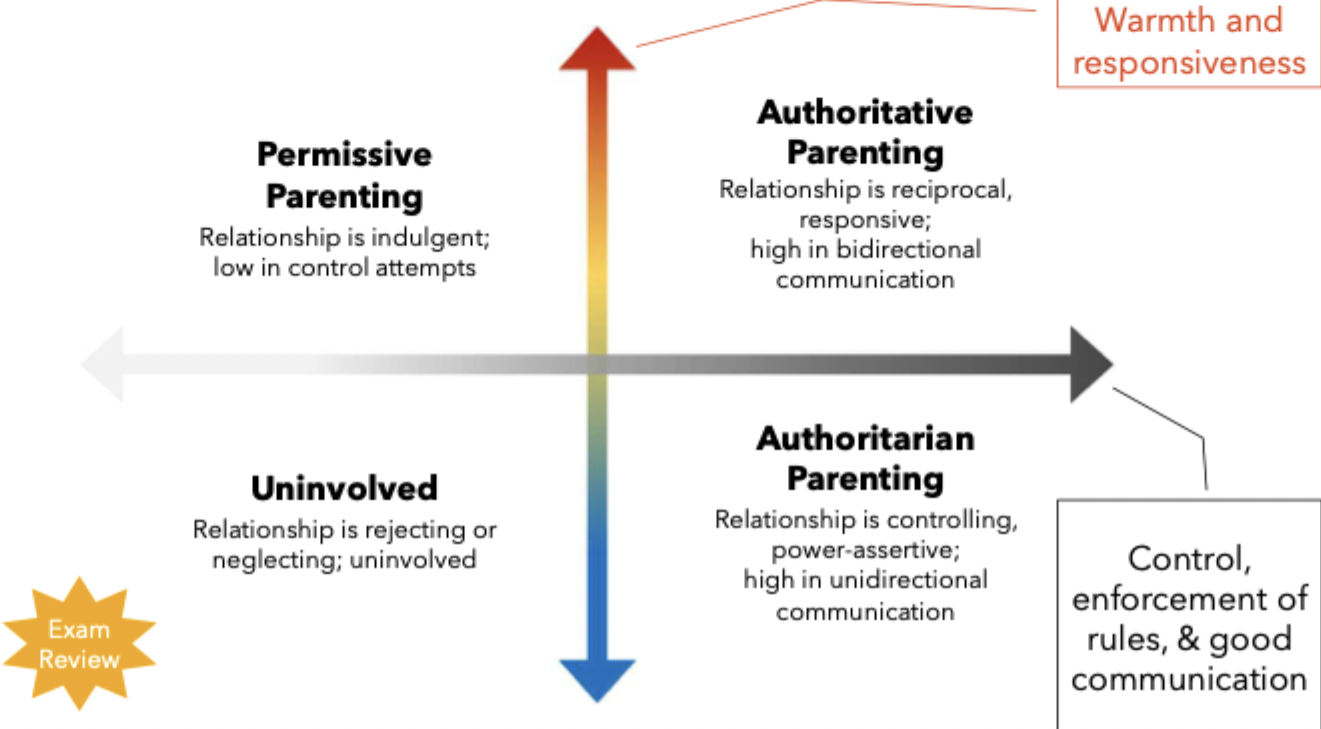
what is uninvolved parenting?
rejecting
neglecting
uninvolved
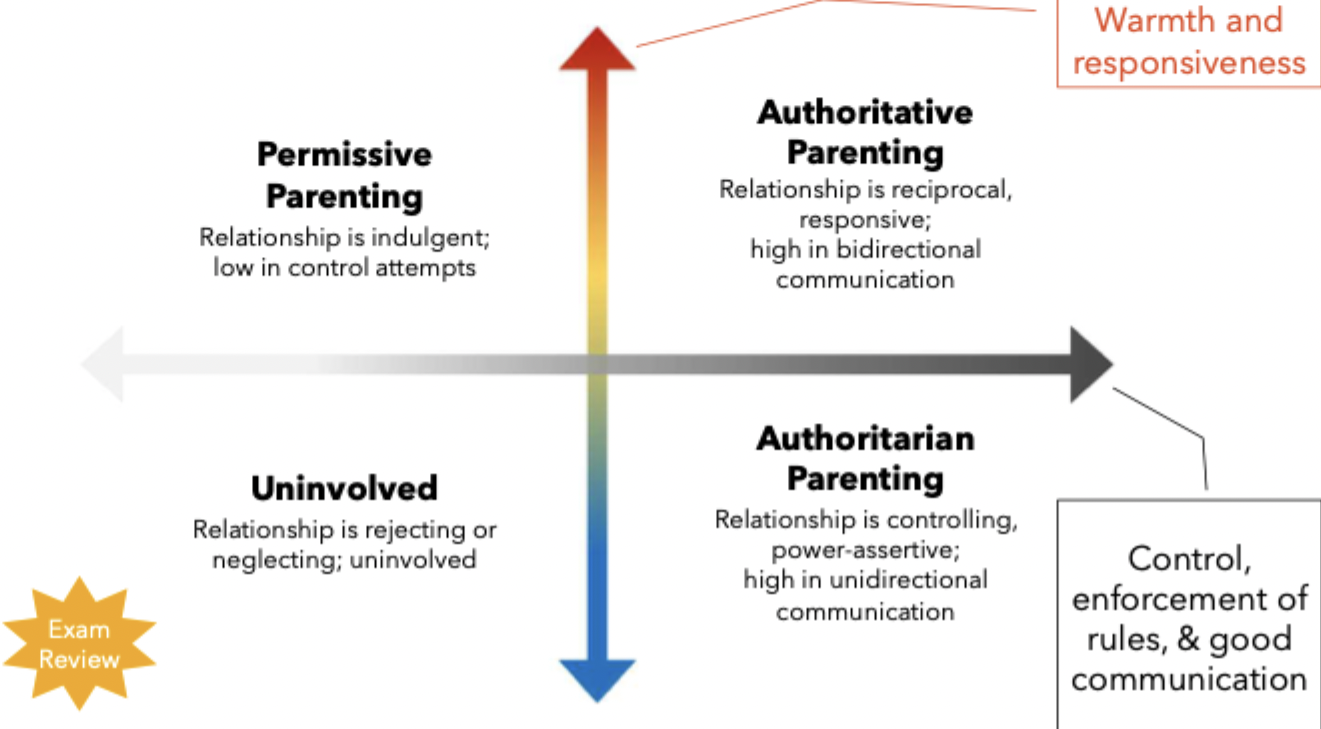
what is permissive parenting?
indulgent
low in control attempts
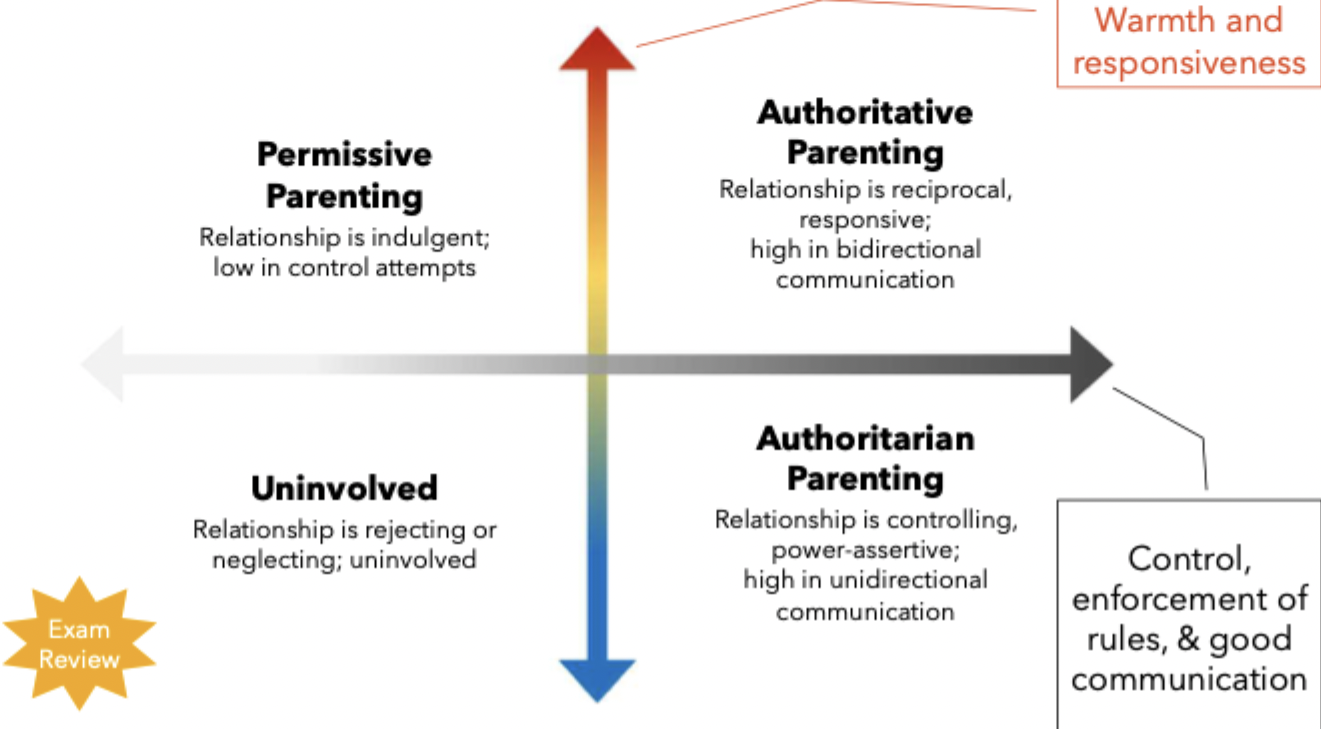
what are typical authoritative parent characteristics?
set clear standards and limits
allow considerable autonomy within limits
attentive and responsive to concerns and needs
what are typical authoritative child characteristics?
competent & self-assured
able to control own behaviour
low → antisocial behaviours
in adolescence: high → social and academic competence
what are typical authoritarian parent characteristics?
nonresponsive to needs
enforce demands through threats and punishment
expect child to comply
what are typical authoritarian child characteristics?
low → social and academic competence
unhappy and unfriendly
not effective at coping with stressors
what are typical permissive parent characteristics?
responsive to needs
do not require child regulation
what are typical permissive child characteristics?
impulsive
low in school achievement
adolescents: engage in school misconduct and drugs
what are typical uninvolved parent characteristics?
do not set limits for behaviour
unsupportive
what are typical uninvolved child characteristics?
infants and toddlers: attachment problems
poor peer relationships
adolescents: numerous academic, social and emotional problems
what are the ratios of parenting styles?
authoritative: most common
mothers > fathers
authoritarian: fathers > mothers
16 possible family parenting styles
how does infant attractiveness affect parenting style?
more attractive → mother more affectionate
mothers less attractive infants:
attend to wrong person
“routine caregiving“
negative attitudes
how does child temperament and behaviours affect parenting style?
bidirectionality of parent-child interactions
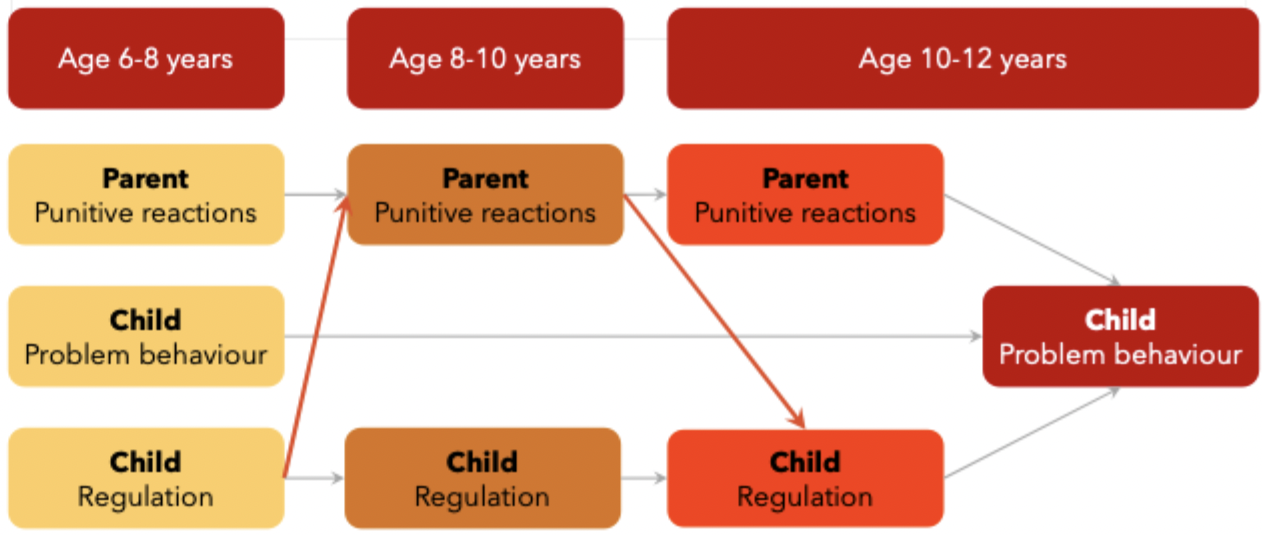
how does socioeconomic status affect parenting style?
low SES = authoritarian
high SES = accepting and democratic, communicate more
why?
diff in parental beliefs
education
environment
economic stress → quality of parenting, family interaction, children’s adjustment
how does culture affect parenting style?
warmth and contol are universal BUT
european canadian and indigenous: high warmth, moderate control (→ authoritative style)
chinese parents: low warmth, high control (→ authoritarian style)
latino families: very high on warmth and control (→ authoritative)
what is parental behaviours?
direct instruction
observing
feedback
punishment needs to be…
promptly and consistently
explanation and future suggestions
given from person of warm affectionate relationship
punishment has serious disadvantages including…
behaviours stopped temporarily
too angry or upset to learn alternative behaviour
may imitate aggressive beheviours of parent → behaviours problems
explain time out vs time in
time out:
unacceptable behaviour, acceptable
need dont matter
i will love you IF you are behvaing a certain way
time in:
being together
parents in charge of calm
can distract for a bit
being words to child’s feelings
stay with child until regulated
help take responsibility (NO BLAME)
talk about avoiding these problems later
what is the impact of divorce on children?
the majority will not experience long-term negative effects